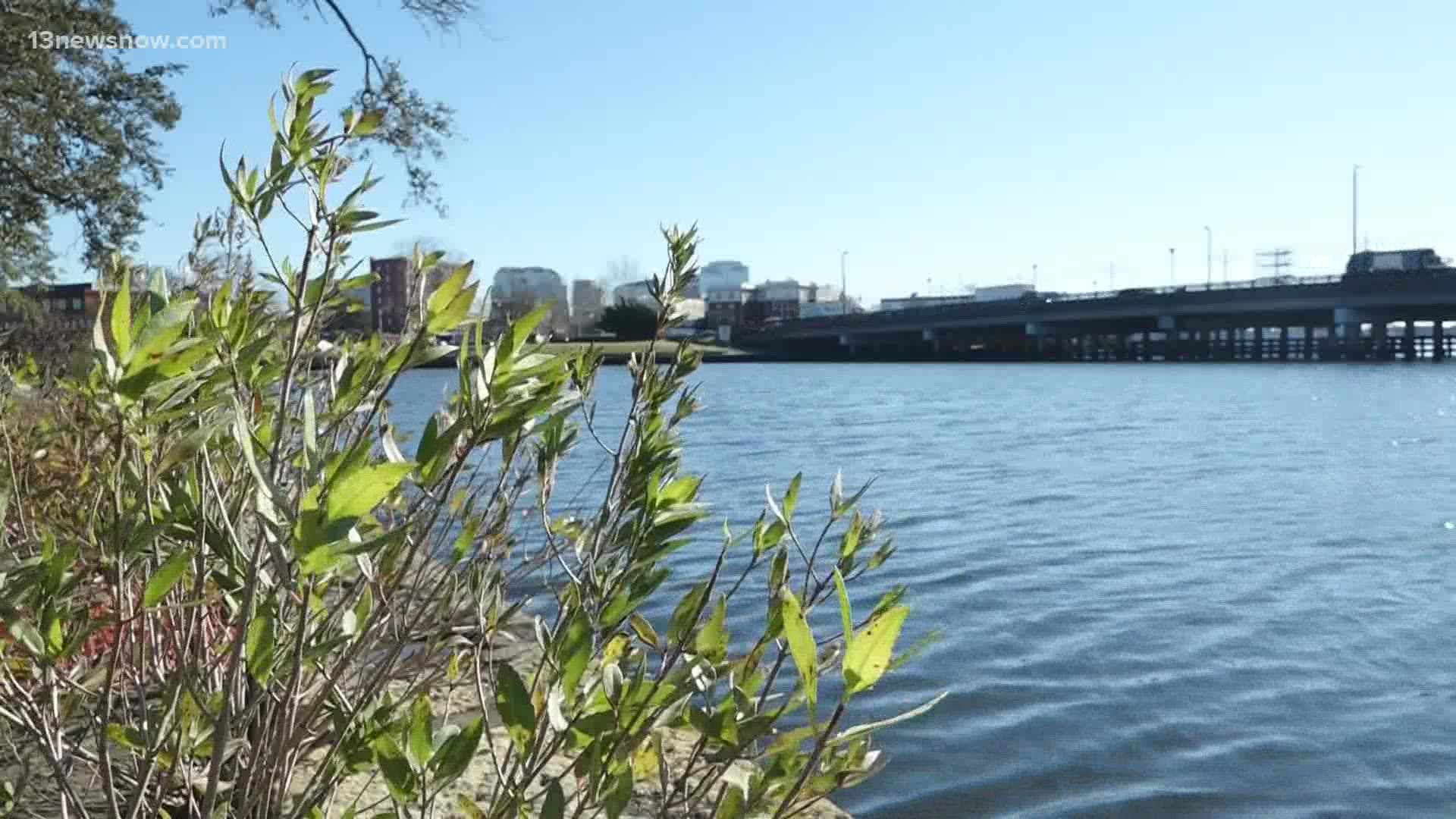NORFOLK, Va. — Less than a week into the new administration, Virginia Gov. Glenn Youngkin wants to roll back environmental regulations put in place by the Northam administration.
This weekend, Youngkin signed Executive Order No. 9, starting the process to end Virginia's involvement in the Regional Greenhouse Gas Initiative (RGGI), but legal experts said it won't be that simple.
“This is a legal requirement. The General Assembly makes legal requirements, so you need the General Assembly to rewrite the law," said Nate Benforado, a senior attorney with the Southern Environmental Law Center (SELC). "Until that happens, Virginia needs to continue its participation in RGGI.”
The program, in which 11 states are a part, aims to cut carbon emissions by forcing power generators to meet an emissions cap or buy additional allowances through auctions administered by RGGI.
The money generated by the auctions goes toward improving energy efficiency for low-income Virginians and helping fund coastal flood mitigation projects.
“It’s not a carbon tax, it’s a pollution reduction program," Benforado said. "The states participating have seen tremendous success. Virginia participation started in 2021, but RGGI has been around for over a decade. What we see is: those states have seen their emissions drop by more than 90% compared to the rest of the country.”
Benforado said that legally, the regulatory process and executive orders alone directed by Youngkin can't undo the decision-making of lawmakers in 2020.
“The 2020 legislation had bipartisan support, requiring Virginia to participate in the RGGI program. To undo that statutory requirement, you need a new statute, and you can’t do that through executive order," Benforado said.
For months, Youngkin acknowledged that backing out of the RGGI was one of his top priorities coming into office.
His order directs the Director of the Department of Environmental Quality and Secretary of Natural and Historic Resources to move forward with the process of ending the state's involvement, including notifying RGGI of its intent to withdraw.
Gov. Youngkin's argument is that the program is a "financial burden" for Virginians and businesses:
Virginia’s utilities have sold over $227 million in allowances in 2021 during the RGGI auctions, doubling the initial estimates. Those utilities are allowed to pass on the costs of purchasing allowances to their ratepayers. Under the initial bill “RGGI rider” created for Dominion Energy customers, typical residential customer bills were increased by $2.39 a month and the typical industrial customer bill by was raised by $1,554 per month. In a filling before the State Corporation Commission, Dominion Energy stated that RGGI will cost ratepayers between $1 billion and $1.2 billion over the next four years.
According to Benforado, a bill brought forward by the standard lawmaking process of the General Assembly would be the proper way in which this change is made. State Sen. Richard Stuart (R- District 28) has currently pre-filed a bill that would suspend Virginia's involvement with RGGI.
Benforado said the SELC is closely monitoring the legal updates to this story.
"We do not believe it can be done through a regulatory process or executive order," Benforado said. "We will be opposing those efforts, and many other organizations working on this."

